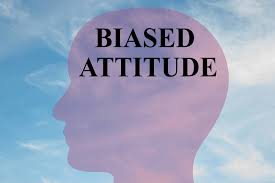 Author and activist Ashton Applewhite has been recognized by the New York Times, National Public Radio, and the American Society on Aging as an expert on ageism. She blogs at This Chair Rocks, speaks widely, and is the author of This Chair Rocks: A Manifesto Against Ageism, “a book we have been waiting for… that blows up myths seven to a page like fireworks” (Los Angeles Review of Books). In 2016, journalism-website Next Avenue, which is part of the PBS system, named Applewhite its Influencer of the Year, for sparking a revolution against ageism.
Author and activist Ashton Applewhite has been recognized by the New York Times, National Public Radio, and the American Society on Aging as an expert on ageism. She blogs at This Chair Rocks, speaks widely, and is the author of This Chair Rocks: A Manifesto Against Ageism, “a book we have been waiting for… that blows up myths seven to a page like fireworks” (Los Angeles Review of Books). In 2016, journalism-website Next Avenue, which is part of the PBS system, named Applewhite its Influencer of the Year, for sparking a revolution against ageism.
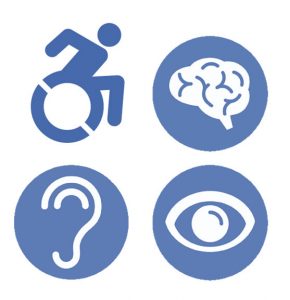 Age Justice Requires Disability Justice—and Vice Versa December 22, 2020 - A terrific special section of the New York Times [in July] was devoted to the 30th anniversary of the passage of the Americans With Disabilities Act. There is no mention of age or ageism. It would be convenient to attribute that omission to the fact that most older people are not disabled (true but complicated). But you sure wouldn’t know it from the way the media and public health advisories turn the vast and varied 60+ population into “the (frail/vulnerable/dependent)… ... Read more
Age Justice Requires Disability Justice—and Vice Versa December 22, 2020 - A terrific special section of the New York Times [in July] was devoted to the 30th anniversary of the passage of the Americans With Disabilities Act. There is no mention of age or ageism. It would be convenient to attribute that omission to the fact that most older people are not disabled (true but complicated). But you sure wouldn’t know it from the way the media and public health advisories turn the vast and varied 60+ population into “the (frail/vulnerable/dependent)… ... Read more Breonna Taylor Did Not Get to Grow Old November 4, 2020 - Breonna Taylor, a Black EMT, was murdered in her bed at 26 years old. Michael Brown was 18. Tamir Rice was 12. Why am I writing about these young victims of police brutality in a [blog] about ageism? Because systemic racism stands between so many Black and brown people and long life itself. Because being anti-ageist means being anti-racist. Because, in the words of poet and activist Audre Lorde, “There’s no such thing as a single-issue struggle because we don’t lead single-issue… ... Read more
Breonna Taylor Did Not Get to Grow Old November 4, 2020 - Breonna Taylor, a Black EMT, was murdered in her bed at 26 years old. Michael Brown was 18. Tamir Rice was 12. Why am I writing about these young victims of police brutality in a [blog] about ageism? Because systemic racism stands between so many Black and brown people and long life itself. Because being anti-ageist means being anti-racist. Because, in the words of poet and activist Audre Lorde, “There’s no such thing as a single-issue struggle because we don’t lead single-issue… ... Read more We’re All Old People in Training, Whether We Know It Yet or Not, Part 2 September 16, 2020 - In a world increasingly segregated by race and class as well as by age, reaching over those divisions to acknowledge the one path we’ll all travel is a radical act. ... Read more
We’re All Old People in Training, Whether We Know It Yet or Not, Part 2 September 16, 2020 - In a world increasingly segregated by race and class as well as by age, reaching over those divisions to acknowledge the one path we’ll all travel is a radical act. ... Read more We’re All Old People in Training, Whether We Know It Yet or Not, Part 1 September 11, 2020 - What’s the best answer to “How old are you?” Tell your questioner the truth—and then ask why it matters. ... Read more
We’re All Old People in Training, Whether We Know It Yet or Not, Part 1 September 11, 2020 - What’s the best answer to “How old are you?” Tell your questioner the truth—and then ask why it matters. ... Read more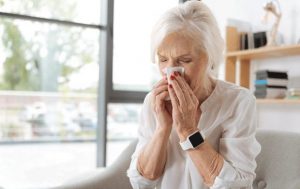 The Pandemic Isn’t Making Ageism Worse. It’s Exposing It—and That’s a Good Thing July 14, 2020 - Media coverage of anything aging-related has long been characterized by alarmist hand-wringing. Coverage of the pandemic is no exception, given that some three-quarters of COVID-19-related deaths worldwide are of people over age 65, many occurring in nursing homes, where the virus has run largely unchecked. Typical headlines read, “Ageism on the rise” and “Pandemic making ageism worse!” Don’t make the same mistake. The pandemic isn’t generating more prejudice, it’s glaringly exposing the ageism and ableism that have been all around… ... Read more
The Pandemic Isn’t Making Ageism Worse. It’s Exposing It—and That’s a Good Thing July 14, 2020 - Media coverage of anything aging-related has long been characterized by alarmist hand-wringing. Coverage of the pandemic is no exception, given that some three-quarters of COVID-19-related deaths worldwide are of people over age 65, many occurring in nursing homes, where the virus has run largely unchecked. Typical headlines read, “Ageism on the rise” and “Pandemic making ageism worse!” Don’t make the same mistake. The pandemic isn’t generating more prejudice, it’s glaringly exposing the ageism and ableism that have been all around… ... Read more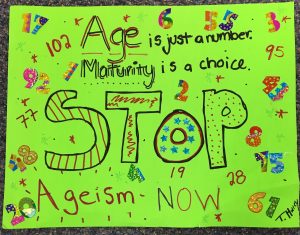 There’s No Excuse for Ageism, Part 2 May 21, 2020 - Another rationale for gerontophobia (fear of aging and aversion to old people) is that olders are closer to death, and, well, who wants to go there? ... Read more
There’s No Excuse for Ageism, Part 2 May 21, 2020 - Another rationale for gerontophobia (fear of aging and aversion to old people) is that olders are closer to death, and, well, who wants to go there? ... Read more There’s No Excuse for Ageism, Part 1 May 7, 2020 - When the last parent died in 2017, I visualized their canoes heading over an immense waterfall. My partner’s and my canoes fell next in line. Gulp. Yet this scenario sure beats the alternative: outliving the younger people we love. Is it this inexorable succession—one generation naturally replacing the next—that gives purchase to the notion that ageism is less problematic than other forms of prejudice? Many people seem to agree that while racism and sexism are inherently wrong, it’s acceptable for… ... Read more
There’s No Excuse for Ageism, Part 1 May 7, 2020 - When the last parent died in 2017, I visualized their canoes heading over an immense waterfall. My partner’s and my canoes fell next in line. Gulp. Yet this scenario sure beats the alternative: outliving the younger people we love. Is it this inexorable succession—one generation naturally replacing the next—that gives purchase to the notion that ageism is less problematic than other forms of prejudice? Many people seem to agree that while racism and sexism are inherently wrong, it’s acceptable for… ... Read more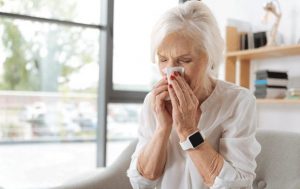 In a Pandemic, Ageism Can Be Lethal April 2, 2020 - According to the Centers for Disease Control and Prevention (CDC), older people and people with underlying health conditions are about twice as likely to “develop serious outcomes” from the COVID-19 coronavirus—get really sick and possibly die—as younger and otherwise healthier people. One reason is that older immune systems are less able to fight off infections. Lungs also deteriorate, becoming less elastic and resilient over time, and like the seasonal flu, COVID-19 is a respiratory virus. And olders are more likely to… ... Read more
In a Pandemic, Ageism Can Be Lethal April 2, 2020 - According to the Centers for Disease Control and Prevention (CDC), older people and people with underlying health conditions are about twice as likely to “develop serious outcomes” from the COVID-19 coronavirus—get really sick and possibly die—as younger and otherwise healthier people. One reason is that older immune systems are less able to fight off infections. Lungs also deteriorate, becoming less elastic and resilient over time, and like the seasonal flu, COVID-19 is a respiratory virus. And olders are more likely to… ... Read more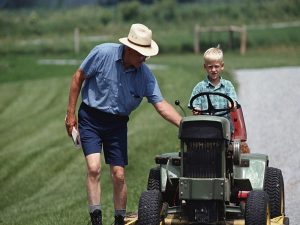 We Can Do Something about Ageism—Here’s the Evidence January 10, 2020 - We’ve known for a while that ageism—negative beliefs and stereotypes about aging—makes us vulnerable to disease and decline, and also that the opposite is true. People with fact- rather than fear-based attitudes towards aging walk faster, heal quicker, live longer and are less likely to get Alzheimer’s—even if they’re genetically predisposed to the disease. Until recently though, we didn’t know much about whether strategies to reduce ageism actually worked. That changed on June 21, when a report published in the… ... Read more
We Can Do Something about Ageism—Here’s the Evidence January 10, 2020 - We’ve known for a while that ageism—negative beliefs and stereotypes about aging—makes us vulnerable to disease and decline, and also that the opposite is true. People with fact- rather than fear-based attitudes towards aging walk faster, heal quicker, live longer and are less likely to get Alzheimer’s—even if they’re genetically predisposed to the disease. Until recently though, we didn’t know much about whether strategies to reduce ageism actually worked. That changed on June 21, when a report published in the… ... Read more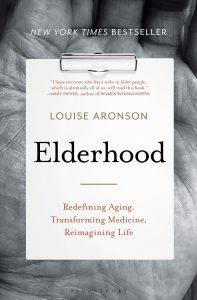 Health Care Is Failing Older People December 13, 2019 - Treating patients slowed by Parkinson’s, geriatrician Louise Aronson, MD, sings a chorus of “Happy Birthday” in her head to make sure they have enough time to respond. I’d love a doctor this humane as I head into old age, not to mention this expert. But she lives across the country and I’ll bet there’s quite a waiting list, so I’ll have to settle for her as an ally—and what an important ally she is. Elderhood: Redefining Aging, Transforming Medicine,… ... Read more
Health Care Is Failing Older People December 13, 2019 - Treating patients slowed by Parkinson’s, geriatrician Louise Aronson, MD, sings a chorus of “Happy Birthday” in her head to make sure they have enough time to respond. I’d love a doctor this humane as I head into old age, not to mention this expert. But she lives across the country and I’ll bet there’s quite a waiting list, so I’ll have to settle for her as an ally—and what an important ally she is. Elderhood: Redefining Aging, Transforming Medicine,… ... Read more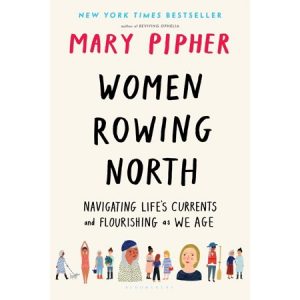 Rowing North Against Ageism, Sexism and Misogyny October 29, 2019 - Mary Pipher is a psychologist who specializes in women—adolescents in her first bestseller, Reviving Ophelia: Saving the Selves of Adolescent Girls (1994), and now those entering old age in Women Rowing North: Navigating Life’s Currents and Flourishing As We Age. ... Read more
Rowing North Against Ageism, Sexism and Misogyny October 29, 2019 - Mary Pipher is a psychologist who specializes in women—adolescents in her first bestseller, Reviving Ophelia: Saving the Selves of Adolescent Girls (1994), and now those entering old age in Women Rowing North: Navigating Life’s Currents and Flourishing As We Age. ... Read more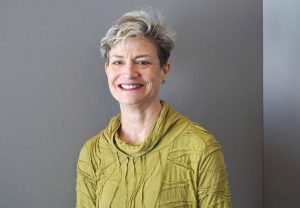 Five Things I Learned on My Book Tour September 25, 2019 - Five weeks, 11 cities, 14 book talks, 9 media appearances, 21 regular talks. Phew. I got so tired, it felt as though gravity was messing with me, or as if I’d been inexpertly inflated. It was also exhilarating: a nationwide network of pro-aging activists came out to support me and spread the word—thank you, thank you, thank you. Also educational: I learned a lot. How to pronounce Buttigieg: Buddha + tszuj (as in “jujj,” as in Queer Eye for the Straight Guy). Source: NPR’s… ... Read more
Five Things I Learned on My Book Tour September 25, 2019 - Five weeks, 11 cities, 14 book talks, 9 media appearances, 21 regular talks. Phew. I got so tired, it felt as though gravity was messing with me, or as if I’d been inexpertly inflated. It was also exhilarating: a nationwide network of pro-aging activists came out to support me and spread the word—thank you, thank you, thank you. Also educational: I learned a lot. How to pronounce Buttigieg: Buddha + tszuj (as in “jujj,” as in Queer Eye for the Straight Guy). Source: NPR’s… ... Read more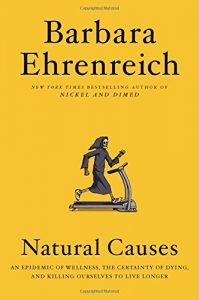 Not ‘Old Enough to Die,’ Old Enough to Choose Wisely August 27, 2019 - Author and activist Barbara Ehrenreich has long been one of my heroes, and I imagine an affinity in our fondness for myth-busting. In her new book, she describes herself as an “amateur sociologist,” and I thought, “Aha, me too!” ... Read more
Not ‘Old Enough to Die,’ Old Enough to Choose Wisely August 27, 2019 - Author and activist Barbara Ehrenreich has long been one of my heroes, and I imagine an affinity in our fondness for myth-busting. In her new book, she describes herself as an “amateur sociologist,” and I thought, “Aha, me too!” ... Read more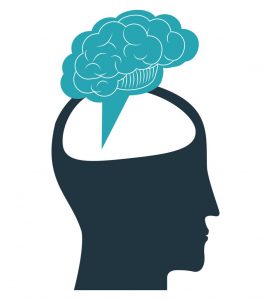 What Will It Take to End Ageism? Part 2 June 24, 2019 - A consumer revolution requires a social revolution. We know that as time grows shorter, a sense of purpose becomes an ever-higher priority for olders. As Coughlin observes, “Culture helps determine what older people find meaningful. And that raises a question: can . . . new, socially permissible routes to meaning open up?” ... Read more
What Will It Take to End Ageism? Part 2 June 24, 2019 - A consumer revolution requires a social revolution. We know that as time grows shorter, a sense of purpose becomes an ever-higher priority for olders. As Coughlin observes, “Culture helps determine what older people find meaningful. And that raises a question: can . . . new, socially permissible routes to meaning open up?” ... Read more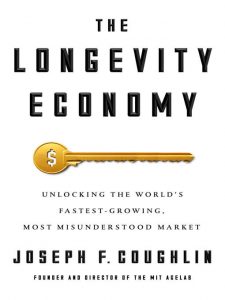 What Will It Take to End Ageism? Part 1 June 10, 2019 - Most Americans aren’t optimistic about getting older and think the source of the problem is aging itself. So do most policy wonks: they frame population aging as a set of choices about how to care for an avalanche of “frail and needy elderly.” MIT’s Joseph F. Coughlin and I don’t share that myopia. His latest book, The Longevity Economy (2017), is packed with big ideas about the “dramatic-yet-predictable” effects of the new longevity, which he and I think presents a remarkable… ... Read more
What Will It Take to End Ageism? Part 1 June 10, 2019 - Most Americans aren’t optimistic about getting older and think the source of the problem is aging itself. So do most policy wonks: they frame population aging as a set of choices about how to care for an avalanche of “frail and needy elderly.” MIT’s Joseph F. Coughlin and I don’t share that myopia. His latest book, The Longevity Economy (2017), is packed with big ideas about the “dramatic-yet-predictable” effects of the new longevity, which he and I think presents a remarkable… ... Read more Shared Stigma, Separate Silos, Part 2 April 3, 2019 - In my last post, I wrote about the regrettable tendency to act as though older people and people with disabilities form two separate groups. When groups within companies don’t share information or knowledge, it’s called a “silo mentality.” It reduces efficiency and compromises the culture. Siloing is just as damaging in the social justice sphere, where it fosters disconnection and marginalization. The antidote is to think and act intersectionally—a clumsy word for a powerful idea. Black feminist Kimberlé Crenshaw coined the… ... Read more
Shared Stigma, Separate Silos, Part 2 April 3, 2019 - In my last post, I wrote about the regrettable tendency to act as though older people and people with disabilities form two separate groups. When groups within companies don’t share information or knowledge, it’s called a “silo mentality.” It reduces efficiency and compromises the culture. Siloing is just as damaging in the social justice sphere, where it fosters disconnection and marginalization. The antidote is to think and act intersectionally—a clumsy word for a powerful idea. Black feminist Kimberlé Crenshaw coined the… ... Read more Shared Stigma, Separate Silos, Part 1 February 18, 2019 - People with disabilities come in all ages, and almost all of us encounter some change in physical or mental capacity as we grow old. Yet, as I wrote in an earlier blog, “We act as though old people never become disabled and disabled people never grow old.” Academics and policymakers approach disability and aging as separate fields, as Ann Leahy observed in a post for the International Network for Critical Gerontology (daunting name, terrific resource). Why? Because people in the aging field are… ... Read more
Shared Stigma, Separate Silos, Part 1 February 18, 2019 - People with disabilities come in all ages, and almost all of us encounter some change in physical or mental capacity as we grow old. Yet, as I wrote in an earlier blog, “We act as though old people never become disabled and disabled people never grow old.” Academics and policymakers approach disability and aging as separate fields, as Ann Leahy observed in a post for the International Network for Critical Gerontology (daunting name, terrific resource). Why? Because people in the aging field are… ... Read more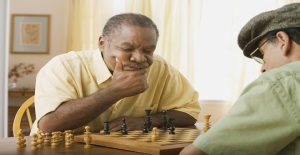 Less Ageism = Less Dementia. It’s That Clear November 13, 2018 - What affliction do Americans fear most? Alzheimer’s disease. I’m one of them, but facts comfort me. Abundant new data shows that our fears are way out of proportion to the threat—and that those fears themselves put us at risk. ... Read more
Less Ageism = Less Dementia. It’s That Clear November 13, 2018 - What affliction do Americans fear most? Alzheimer’s disease. I’m one of them, but facts comfort me. Abundant new data shows that our fears are way out of proportion to the threat—and that those fears themselves put us at risk. ... Read more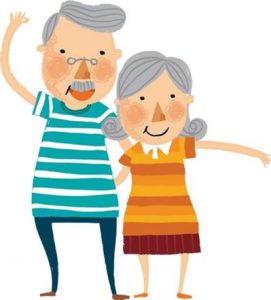 Why It’s Just Fine to Fail at “Successful Aging,” Part 3 September 21, 2018 - More about what’s wrong with the concept of “successful aging”—a topic explored in Parts 1 and 2 and in Successful Aging as a Contemporary Obsession: Global Perspectives (2017), a collection of essays edited by Sarah Lamb. What else is problematic about “successful aging”? It medicalizes the aging process. In an essay about selling youthful sexuality as “successful aging,” Emily Wentzell defines “lifestyle drugs” as pharmaceutical treatments—ranging from baldness cures to eyelash lengtheners—that cause social distress rather than physical harm. The… ... Read more
Why It’s Just Fine to Fail at “Successful Aging,” Part 3 September 21, 2018 - More about what’s wrong with the concept of “successful aging”—a topic explored in Parts 1 and 2 and in Successful Aging as a Contemporary Obsession: Global Perspectives (2017), a collection of essays edited by Sarah Lamb. What else is problematic about “successful aging”? It medicalizes the aging process. In an essay about selling youthful sexuality as “successful aging,” Emily Wentzell defines “lifestyle drugs” as pharmaceutical treatments—ranging from baldness cures to eyelash lengtheners—that cause social distress rather than physical harm. The… ... Read more Why It’s Just Fine to Fail at “Successful Aging,” Part 2 September 20, 2018 - Part 1 of this series of blogs argues that, as a model for growing older, “successful aging” leaves ageism unchallenged or contributes to it. What else is problematic about “successful aging”? There are some insightful answers in a collection of essays called Successful Aging as a Contemporary Obsession: Global Perspectives (2017), edited by Sarah Lamb. It’s classist. Because aging “successfully” requires education, leisure, passports and access to good health care and nutrition and exercise—all of which are expensive—it overlooks social… ... Read more
Why It’s Just Fine to Fail at “Successful Aging,” Part 2 September 20, 2018 - Part 1 of this series of blogs argues that, as a model for growing older, “successful aging” leaves ageism unchallenged or contributes to it. What else is problematic about “successful aging”? There are some insightful answers in a collection of essays called Successful Aging as a Contemporary Obsession: Global Perspectives (2017), edited by Sarah Lamb. It’s classist. Because aging “successfully” requires education, leisure, passports and access to good health care and nutrition and exercise—all of which are expensive—it overlooks social… ... Read more


